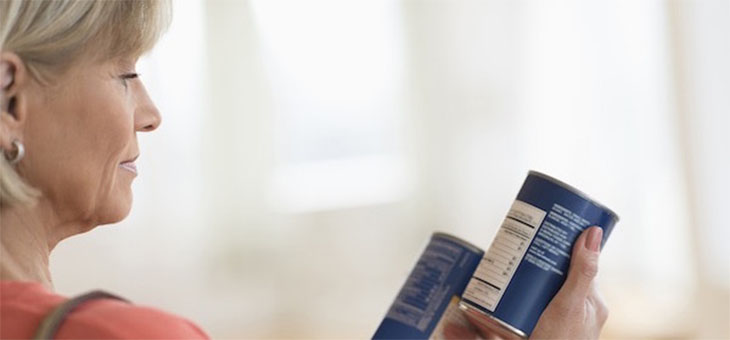Potentially deadly undeclared substances were found in almost half of the imported food products bought and tested by researchers from James Cook University (JCU) as part of a study into food safety.
The allergans were in 50 packaged food items sourced from Asian grocery stores in Melbourne. They included egg, gluten, milk and peanut, some in very high concentrations, according to a study published in the Food Additives & Contaminants journal.
Forty-six per cent of the products analysed contained ingredients not listed on the labels and 18 per cent of the products contained more than one undeclared allergen.
Products from China contained the highest number of detectable, undeclared allergens, followed by Thailand and South Korea.
Study lead Andreas Lopata, head of JCU’s molecular allergy research laboratory, said that while Australia has strict food labelling laws, standards were more lax in Asian countries.
“That’s of concern, with Australian imports from ASEAN (Association of Southeast Asian Nations) countries increasing from 18 to 23 per cent from 2002 to 2012, and the food trade from Asia to Australia continuing to increase by about 2.5 per cent each year,” he said.
Food Standards Australia New Zealand says that most food allergies are caused by peanuts, tree nuts, milk, eggs, sesame seeds, fish and shellfish, soy, lupin and wheat.
“These must be declared whenever they are present in food as ingredients (or as components of food additives or processing aids), however small the amounts present.
“Some foods and food ingredients or their components can cause severe allergic reactions including anaphylaxis.”
Allergy and Anaphylaxis Australia says that food allergies in Australia are estimated to affect one to two per cent of adults and four to eight per cent of children under five. Recent data indicates that 10 per cent of children aged under one have a proven food allergy.
Between 2005 and 2012, hospital admissions for food-induced acute allergic reactions spiked by 150 per cent.
The New Daily reports that the number of food products recalled due to allergens not being identified on the label has been steadily increasing over the past decade.
Of the 100 food recalls in 2018, 46 cases were for undeclared allergens and 20 were due to ‘microbial contamination’ caused by potentially life-threatening bugs such as listeria, salmonella and E. coli.
Prof. Lopata says: “With the increasing number of food recalls and anaphylaxis recorded in Australia, it’s very important that further action continues in the area of food allergen labelling for the protection of allergic consumers here.”
Allergy and Anaphylaxis Australia chief executive Maria Said says that her organisation has been telling [allergy sufferers] to be cautious of foods imported from Asian countries for many years.
“When you look at the number of food recalls, and how many involve imported foods, it’s concerning.
“If you’re going to use an imported food …do due diligence and try to find out how it’s made.”
Ms Said says the JCU research reinforced the message that people must be cautious.
“Foods imported from Asian countries, where many people don’t understand Australian labelling regulation, are fraught with danger,” she says.
“Australians make presumptions that the food label is correct. But we’ve found that’s not true.
“We need to get better at making sure that those who import food understand our laws.”
Ms Said referred to the case of a 10-year-old Melbourne boy who died from an anaphylactic reaction in 2013 after drinking coconut milk imported from Taiwan. The product, Green Time Natural Coconut Drink, was recalled a month after the boy’s death, after it was found to contain undeclared dairy products.
Ms Said says that while Australia has strong labelling laws, “our policing of imported products is not so good”.
If you enjoy our content, don’t keep it to yourself. Share our free eNews with your friends and encourage them to sign up.
Related articles:
Lack of sleep can hurt your gut
These supplements ‘a waste of money’
A text message could save your life

